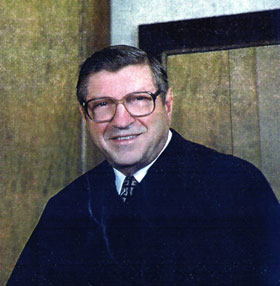Delay in Criminal Procedure: What’s Good for the Goose Is . . . Well, Never Mind
Earlier this week, in Gonzalez v. Thaler (No. 10-895), the Supreme Court rejected Rafael Gonzalez’s pro se habeas corpus petition because it was filed about five weeks too late. The Court did not comment on the deep irony of this decision: what Gonzalez was complaining about in his petition — the issue that the Court refused to address on the merits — was a ten-year delay between the time that he was charged and the time that he was brought to trial, allegedly in violation of his Sixth Amendment right to a speedy trial. That’s right — ten years, occasioned mostly by a six-year delay by the government in initiating extradition proceedings. What’s an extra five weeks of delay by the defendant in a case that has already been delayed far longer by others?
Pretrial delay by the government and postconviction delay by the defendant are, of course, governed by different legal rules. The government gets the very malleable and forgiving multifactor test of Barker v. Wingo. (Depending on the jurisdiction, there may also be a somewhat more rigorous statutory test.) The defendant, on the other hand, faces (for purposes of federal habeas) the strict one-year statute of limitations of 28 U.S.C. § 2244(d)(1)(A). It was this one-year deadline that Gonzalez missed by five weeks.
To be sure, the priorities of the criminal-justice system appropriately shift after conviction, justifying different approaches to delay.


 Judge Dale Ihlenfeldt died right after Christmas. He was 92 years old and hadn’t sat on the bankruptcy court bench in Milwaukee for many years, though he remained active until fairly recently, including by teaching an annual CLE program in Madison in which I also participate. Teaching CLE required him to keep up on developments in bankruptcy law, and that suited him just fine, because he loved the law. He also liked lawyers, and his warm, engaging personality was always welcome whenever he could join us.
Judge Dale Ihlenfeldt died right after Christmas. He was 92 years old and hadn’t sat on the bankruptcy court bench in Milwaukee for many years, though he remained active until fairly recently, including by teaching an annual CLE program in Madison in which I also participate. Teaching CLE required him to keep up on developments in bankruptcy law, and that suited him just fine, because he loved the law. He also liked lawyers, and his warm, engaging personality was always welcome whenever he could join us.